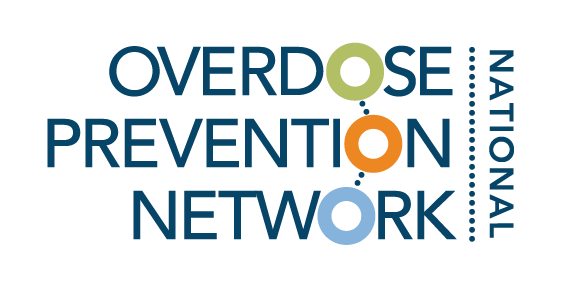
Resource Library
Toolkits, guides, and other resources vetted by experts in overdose prevention.
Filter by category and tags, or search by keyword (ex. COVID-19, harm reduction).
Communities Talk
The El Dorado Coalition for Overdose Prevention and Education created a template to be used for other overdose prevention coalitions to use for outlining the overdose crisis locally, their coalition's history, achievements, and ways for new members to get involved. This fact sheet can serve as an effective tool for communication and engagement with the community, coalition partners, and local decision-makers.
Ruchika Tulshyan: Creating Purposeful Spaces of Inclusion and Belonging
In this fireside chat, Ruchika Tulshyan and Melody Barnes (Aspen Institute Forum for Community Solutions) discussed practices that can support and operationalize inclusive, equity-centered collaborative cultures. They also shared about the importance of elevating the voices of women of color and those historically underestimated within collaborative work.
Evidence-Based Strategies for Preventing Opioid Overdose: What’s Working in the United States
This document is to assist community leaders, local and regional organizers, non-profit groups, law enforcement, public health, and members of the public in understanding and navigating effective strategies to prevent opioid overdose in their communities.
Towards Equity-Driven Whole Child Health and Wellness
This brief provides a condensed version of the guide created with Youth Opioid Response California and California AfterSchool Network, to provide information on various strategies co-designed across sectors to support substance use prevention and creating hubs at schools and other community sites to promote whole child, whole family, and whole community health and wellbeing.
California's Golden Opportunity
In this blog post by Jeff Davis, the Executive Director of California AfterSchool Network, speaks on the opportunities to partner with expanded learning programs in California to support the whole child, whole family, and community wellness.
Public Safety-Led Community-Oriented Overdose Prevention Efforts (PS-COPE) Concept Paper
This PS-COPE Concept Paper is a new approach to community-oriented overdose prevention and response in Black, Indigenous, and People of Color (BIPOC) Communities. It is a supplemental resource that describes the cross-cutting principles of trauma-informed, recovery-oriented, procedurally just and PS-COPE approaches, and how each of these frameworks brings unique value to working within BIPOC communities.
Public Safety-Led Community-Oriented Overdose Prevention Efforts (PS-COPE) Toolkit
The Public Safety-led Community-oriented Overdose Prevention Efforts (PS-COPE) Toolkit is a new approach to overdose prevention and response for Black, Indigenous and people of color (BIPOC) communities. It combines three proven models to enhance overdose prevention and response: trauma-informed care, recovery-oriented systems of care and procedural justice.
Communities Driving Health Equity: A Spotlight Video Series
The National Academy of Medicine (NAM) is proud to present a documentary video series that spotlights local organizations across the U.S. advancing health equity for their communities by addressing the environmental, social, economic, and structural challenges that may impact residents’ health. The videos show that, while challenges are numerous, progress is possible when community members, organizations, funders, and policy makers work together to drive local-level solutions that improve health equity and well-being for all.
Sacramento County Coalition for Youth
The SCCY is a group of caring community members working together to make Sacramento a safe place for young people to grow up, free from the influences of substances that are addictive and harmful.
PRO Youth and Families
PRO Youth and Families partners with schools, community organizations, and local governments to engage youth in opportunities that inspire hope. PRO Youth and Families’ offers a variety of direct service programs for youth and supports the Youth & Family Collective initiative that uplifts community organizations, drives collaboration, and fosters capacity building for responsive youth and family programs and services.
Omni Youth Programs
Omni Youth Programs mission is to create strong families, develop youth leaders and engage the community to prevent youth alcohol, marijuana & other drug use.
Story Map: Shasta County’s Rising Fentanyl Problem
Shasta Substance Use Coalition developed a story map to provide their community with a resource to understand the scope of fentanyl’s impact on their community utilizing local data, Arc GIS mapping, and story telling. Visit their website to learn more.
Harm Reduction in Action: Lifting Up the Drug User Voice
This video promotes positive change and patience when addressing addiction treatment, and the importance of prioritizing mental health throughout the process.
Supervised Consumption Services
An overview of supervised consumption services (SCS), including the benefits and barriers.
Drug Disposal: Drug Take Back Locations
This guideline provides an overview of medicine take back options and why they are the best way to safely dispose of most types of unneeded or expired prescription and over the counter medicines.
Example from the Field: How a Rural County Implemented Harm Reduction Strategies
This video shows an example of a rural coalition that successfully implemented harm reduction strategies.
Overdose Response and Linkage To Care: A Roadmap for Health Departments
This roadmap provides local and state health departments with information, resources and tools to implement effective strategies to support linking people who are at risk of opioid overdose to care.
Establishing Peer Support Services for Overdose Response: A Toolkit for Health Departments
This toolkit is for local and state health departments and community partners who are exploring opportunities to implement or enhance peer support services within overdose response and linkage to care initiatives.
Preliminary Monthly Fatal Drug-Related Overdose Counts for December 2020 – November 2021
This preliminary statewide monthly count data is presented by substance and posted on the Overdose Prevention Initiative (OPI) Data webpage and is intended to provide death data to our partners more quickly.



















